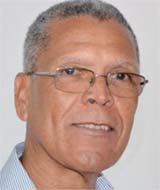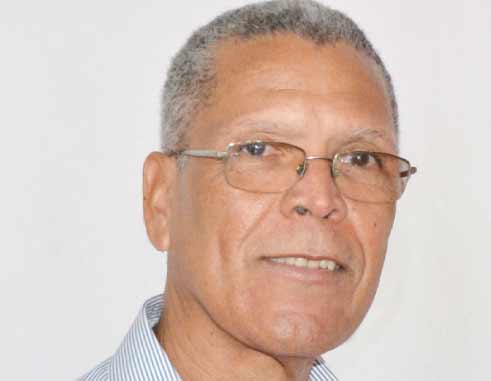
HAVING noted earlier that our economy is in worse shape than previously thought, we should add that all is not gloom and doom, although these comments have been delayed by last week’s interruption.
In this case, the bearer of glad tidings is none other than the Director of Economics of the Caribbean Development Bank, Dr. Justin Ram. Following the Bank’s review of our economy, Dr. Ram had this to say during his joint press conference with our Minister, Dr. Raymond:
“We see a lot of potential here in St. Lucia and we think that if the right reforms are put in place, that the future for St. Lucia looks bright”. (Extracted from the video of that press conference).
Encouraging words for a dispirited people, but they come from our Development Bank, and we should listen to the Bank’s advice. A mature approach also by our Government and by Minister Raymond in the holding of that press conference with the CDB representative, as it displayed a refreshing openness in the discussion of our nation’s economic health and a willingness to include the population in the assessment of our affairs.
We welcome also Dr. Raymond’s invitation to the public to engage in constructive debate on the economy and trust that our many qualified professionals will do so. It would be of some comfort too if we could be assured that the recently concluded review by the CDB would be a periodic one, followed of course by that press conference.
We must also congratulate Prime Minister Chastenet on the holding of his press conference, which, by all accounts, was well received. We hope that this will be a regular occurrence, as these discussions with the press will be an essential pillar in the building of confidence in his government, and in himself.
If the Government has made a mis-step thus far, it is an understandable one, and that is in its promise of the “five to stay alive” within the first hundred days of office. The trouble with this is not in the promises, but in the timeframe, because even if they could all have been achieved in the stated one hundred days, it focuses the population on the short-term. The problem is that with the economy having been as depressed as it has been over the last few years, everyone is crying out for relief, and we all want it – now!
Meanwhile, the CDB is advising that we establish a goal for ourselves for the next 15 years, and that we then develop strategies for achieving that goal with 3 to 5 year economic plans. Managing the expectations of a population anxious for relief is not going to be an easy task, and open government may be the only route to success with this. It will be essential for the population to buy into government’s long term economic goals, as a quick fix by government in time for the next elections will be the surest way of destroying the country.
Returning to the Prime Minister’s press conference, there are two areas that bear further discussion. The first is that of his mention of agriculture, and of the efforts of his government to revive banana farming. Following the passage of Tropical Storm Matthew, he has again been at the forefront, providing farmers with the reassurance that his government would be re-investing in the agricultural sector.
Without detracting in any way from the role of the Minister of Agriculture, it is vital for the Prime Minister to be seen and heard by farmers acknowledging the importance of agriculture to this country, and to hear of his government’s commitment to this sector. Agriculture needs someone to champion its cause, and the person best placed in government to do that is its Head. It is important too that our young people hear from the most important person in government that agriculture is an acceptable professional endeavour, and that the government supports it.
The second element of the Prime Minister’s press conference that attracted attention was his comment on the agreement with Desert Star Holdings, the company proposing to build that US$2.6bn project in Vieux Fort. According to the Prime Minister, at this point the Government has only reached a framework agreement with DSH, but that as soon as a contractual agreement is concluded it will be posted on the government website.
By now, everyone is probably aware of my position on the Citizenship by Investment Programme which will underpin this project, and although I hope it doesn’t get to that, the stated intention of posting the contract with DSH on-line is to be applauded as it will be another demonstration of open government.
This issue of “open” government is fundamental to gaining of the confidence of the population, and to engaging the entire country in the efforts at reconstruction.
Transparency and accountability are the hallmarks of good government; they have less to do with the personal integrity of those holding office than with the protection of the processes of government. And so it is perfectly possible for someone of even the highest personal integrity to so cloud the performance of government that few any longer have confidence in its functioning. We must guard against this, and we must guard against the concept that ethics and morality need to be legislated if they are to be demonstrated.
Much has already been written on the reasons for our opposition to the CIP, from the indignity that it imposes on us to the senseless free ride which it provides to potential developers who are provided with risk free capital. And perhaps most importantly, on the devastation that this CIP will wreak on our national psyche as Government potentially earns large sums of money with no productive effort.
It is this parallel with Trinidad & Tobago and its oil wealth which is particularly scary, as there are those who are of the view that to a large degree, it is the separation of the effort made in producing oil, largely undertaken by expatriate firms, from the spending of that oil wealth by the population which is at the root of that country’s social problems. It is felt that this separation of effort from accumulation of wealth has contributed to the poor work ethic in the country, as that oil wealth is seen as the national patrimony.
On the issue of the poor work ethic in Trinidad & Tobago however, here is what Professor Ann Marie Bissessar, Dean of the Faculty of Social Sciences of the UWI, St. Augustine Campus had to say in an article published in the Trinidad Guardian of February 05, 2012:
“It is evident, however, that this is at the heart of many of the challenges facing the country – the increase in the number of gangs, teenage pregnancies, drug abuse, and the increase in the drug trade, clogged drains, dirty pavements, squatting – all are in some way linked to a poor work ethic”.
It’s only become worse since then, and today, crime is the dominant feature of life in Trinidad & Tobago. The largest share of their budget is allocated to national security, but it doesn’t help – they’re now killing each other at a rate of over one a day.
In St. Kitts where the IMF reports on the success of their CIP in enabling that country to reduce its Debt to GDP ratio, the killing spree also continues, and St. Kitts has now been forced to seek the assistance of the Regional Security System in its fight against crime.
Here at home, our social problems have begun to surface, and they are shocking. The “monsters” are emerging.
So what is the path to strengthening our economy? Thankfully, the answer to that question is one that we’ve now been given. If we embrace the support of the CDB and embark on the fiscal reforms which have been recommended, the future looks bright
We will return to this after paying respect to our heritage next week.















I think you should know by now that we the public are bored to death with the song you just sang which is “the economy is in worst shape than previously thought”. I have never heard an incoming government praise an outgoing one for leaving the economy in a good state. Don’t give us this same bullshit day in day out man. Gives us some objectivity sometimes man instead of this partisan garbage. We know you do better than that.
The 2.6 Billion project is a dream, like the 50 billion canal project in Nicaragua. Look at Le Paradis. The coming 5-10 years will be hard for the people in St. Lucia. My wife and I left early 2015 and are doing well in booming Panamá. Far cheaper to live and plenty of jobs for skilled people. I really feel sorry for many Lucians that cannot are hardly make some money. It is the world depression.